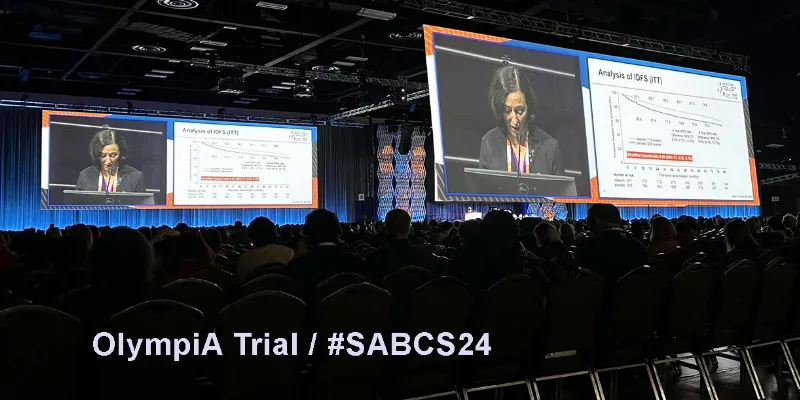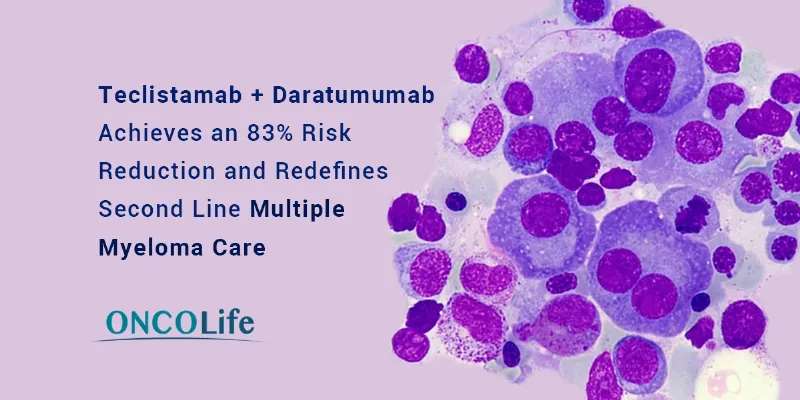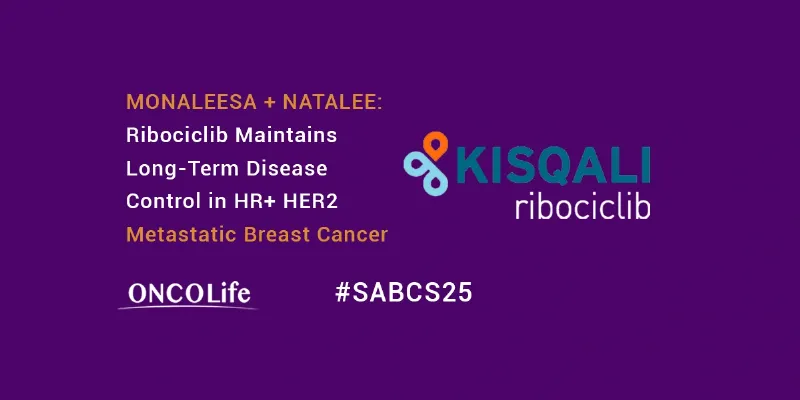Olaparib Shows Long-term Survival Benefits in BRCA+ and HER2- Breast Cancer

The latest findings presented at the 2024 San Antonio Breast Cancer Symposium (SABCS) reveal that patients with germline BRCA-mutated, HER2-negative breast cancer who received one year of the oral PARP inhibitor olaparib (Lynparza) after standard therapy saw notably improved outcomes. The international phase III OlympiA trial reported a 28% reduction in death risk and stronger protection against disease recurrence compared to those given a placebo over a six-year period.
These benefits apply to various subtypes and confirm the value of germline BRCA testing at diagnosis. No new safety concerns emerged, reinforcing olaparib’s status as a transformative treatment option.
“These exciting long-term data from OlympiA confirm that adjuvant treatment with olaparib for one year continues to deliver clinically meaningful survival benefit for patients with germline BRCA-mutated high-risk HER2-negative early breast cancer even after six years,” said Prof Judy E. Garber, chief of the Division of Cancer Genetics and Prevention at Dana-Farber Cancer Institute and the presenter of the study.
Sustained Improvements in Survival
In the updated data, patients receiving olaparib had a 28% reduced risk of death versus placebo. This translated into an overall survival rate of 87.5% at six years, compared to 83.2% for those not receiving the PARP inhibitor. The agent also reduced the risk of invasive disease recurrence or metastasis by 35%. At six years, 79.6% of patients treated with olaparib remained free of invasive disease, compared to 70.3% of those receiving placebo.
These benefits were seen not only in women with triple-negative breast cancer—a more aggressive subtype—but also in patients with estrogen receptor (ER)-positive disease. Importantly, improvements remained consistent across different patient subgroups, regardless of prior chemotherapy approach or the specific BRCA mutation involved.
Why Genetic Testing Matters
BRCA1 and BRCA2 are genes that, when mutated, significantly increase a person’s risk of developing breast cancer. Historically, identifying those with these genetic variants has guided treatment decisions.
“Data from the third prespecified interim analysis presented here provides further support for olaparib’s benefits in patients with high-risk, HER2-negative breast cancer with germline mutations in BRCA1 or BRCA2,” said Prof Garber.
A Transformative Option in Early-Stage Disease
When first announced in 2022, the OlympiA findings led to regulatory approval of olaparib in the adjuvant (post-surgery) setting for certain patients with HER2-negative, BRCA-positive breast cancer. Olaparib is the first and only PARP inhibitor to demonstrate a clear survival advantage in early-stage breast cancer. The updated results strengthen that position.
“The ongoing data from the OlympiA trial are reassuring in the observations of persistent and increasing benefits for these breast cancer patients in the follow-up phases, improving not only protection against recurrence but also overall survival as well,” Prof Garber said. “This demonstration of efficacy makes it more important than ever that we be able to identify individuals who might benefit when they begin their treatment so that we can plan to introduce olaparib to their care at the most opportune moments.”
Safety and Future Directions
Notably, there was no observed increase in rare but serious blood cancers such as myelodysplastic syndrome (MDS) or acute myeloid leukemia (AML). The number of secondary BRCA-related cancers, such as new ovarian or contralateral breast tumors, was also lower among patients treated with olaparib.
“These data highlight the safety of olaparib and, therefore, the possibility of moving PARP inhibitors to the treatment of BRCA-associated breast cancers that are lower risk,” noted Prof Garber. “It also allows us to consider the very preliminary possibility of a safe and effective oral agent that could be developed for cancer interception—to be given intermittently to eliminate cells in BRCA mutation carriers that have begun to transform toward several types of malignancy.”
Additionally, both the olaparib and placebo groups recorded an equal number of pregnancies, suggesting no adverse effect on fertility, an important consideration for younger patients.
The OlympiA trial
OlympiA is a phase III, double-blind, placebo-controlled, multicentre trial assessing one year of adjuvant Olaparib tablets in adult patients with germline BRCA-mutated, HER2-negative early breast cancer who have completed neoadjuvant or adjuvant chemotherapy. Its primary endpoint is invasive disease-free survival, measured from randomization until loco-regional or distant recurrence, new cancer, or death. Key secondary endpoints include distant disease-free survival and overall survival, measured until distant recurrence or death without distant recurrence.
The OlympiA trial, coordinated by the Breast International Group (BIG) and involving multiple global partners, continues to follow participants. Although some patient subsets were small, the consistent pattern of benefit remains “very reassuring,” according to the research team. This study was supported by AstraZeneca and Merck & Co., Inc. Prof. Garber declares no conflicts of interest.
About Olaparib
Olaparib (Lynparza) is a first-in-class PARP inhibitor that disrupts the DNA damage response in cells with BRCA1/2 mutations or other homologous recombination repair deficiencies. By trapping PARP at DNA single-strand breaks, it triggers replication fork collapse, causing double-strand breaks and cancer cell death. Lynparza may also enhance immunogenicity and anti-tumour responses. Jointly developed by AstraZeneca and MSD, it is approved worldwide for multiple cancers, including ovarian, pancreatic, prostate, and endometrial, either alone or with other agents such as bevacizumab or durvalumab. With over 140,000 patients treated, Lynparza’s ongoing development program explores its potential across various PARP-dependent tumour types.











Comments
No Comments Yet!